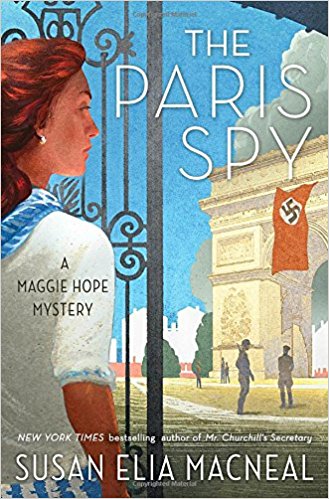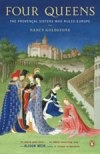 Goodness, this Top Ten really made me think! Turns out, most of my favorite books are the ones that are peopled with distinctive, believable secondary characters whom I feel that I know. (Perhaps that also explains my addiction to the ensemble masterpiece LOST.)
Goodness, this Top Ten really made me think! Turns out, most of my favorite books are the ones that are peopled with distinctive, believable secondary characters whom I feel that I know. (Perhaps that also explains my addiction to the ensemble masterpiece LOST.)
Anyway, I could have easily rattled off 10 favorites from Jane Austen’s works, or from The Lord of the Rings. But, I didn’t even try to pick just one of G.R.R. Martin’s cast of characters from A Song of Fire and Ice, seriously?
1.) Lady Catherine de Bourgh, Pride and Prejudice, by Jane Austen—Austen’s books are rife with hilarious and memorable supporting characters, caricatures really. But, the haughty, domineering (and hilarious) Lady Catherine takes the cake. An authority on everything and everyone, Lady Catherine commands the spotlight. “I must have my share in the conversation!” She reminds Darcy and Colonel Fitzwilliam.
2.) Rusty Everett, Under the Dome by Stephen King—My great sorrow is that Rusty does not even feature in the Under the Dome TV show. But he is one of the most human and memorable characters from the book. Rusty is the everyman, the guy we all root for. Of course, there is Barbie the badass, ex-army superhero. But Rusty is someone whom you know you’ve met … thrust into unusual circumstances, who rises to the occasion.
3.) Peregrin (aka Pippin) Took, The Lord of the Rings, by J.R.R. Tolkien—It’s hard to pick a favorite hobbit, and I wouldn’t dare. But as literary characters go, Pippin is endearing, mischievous, and stellar. He elbows his way into the Fellowship, peers into the Palintir, and charms both Treebeard and the raving mad Denethor. “Fool of a Took!” cries Gandalf, after one of Pippin’s signature gaffs in the Mines of Moria.
4.) Just about everyone in the Harry Potter Series, by J.K. Rowling—Really these books are a cornucopia of delightful, palpable secondary characters. That is why they were able to get so many British greats to take cameos in the films. There are the scene-stealing twins, Fred and George Weasley; the feared and revered Professor McGonagall; the ditzy and dreamy Loony Lovegood; everyone’s favorite fugitive, wizard godfather Sirius Black, Tonks the ass-kicking, punk auror, oh and also Dobby, the house elf, and then Winky, the drunk elf. Really, I must stop, but it’s not easy…
5.) Nelly Dean, Wuthering Heights, by Emily Brontë—I actually do not like Nelly very much at all. She is the original unreliable narrator, presenting her story as if she were not taking sides while in reality she drives along the friction between characters. Knowing Heathcliff is in earshot, Nelly prods Cathy to say it would “degrade her” to marry him.” Decorum prevents me from using the apt word describe Nelly, but it rhymes with witch.
6.) Aunt Dahlia, The Jeeves and Wooster books, by P.G. Wodehouse—Again, I could have picked Aunt Agatha, aka ‘the nephew crusher,’ (or the simpering Madeline Bassett who calls stars “daisy chains,” or the completely daft Barmy Fortheringay Fipps, or Harold ‘Stinker’ Pinker). But Dahlia is the one of my favorites partly for the many whacky schemes into which she ensnares Bertie, but also for her line, “curse all dancing chauffeurs,” uttered after she gets locked out of Brinkley Manor during the servants ball. No wonder, Wodehouse titled a book, Aunts Aren’t Gentlemen.
7.) Everyone, Suite Française, by Irène Némirovsky— Némirovsky planned this as a sort of paean to Leo Tolstoy’s War and Peace. It is a wonderful, shattering novel about the early days of World War II in France, as the Germans roll through Paris and the small villages. There are so many finely drawn and distinct characters: the parents of a son missing in battle; wealthy Parisians fleeing to resorts; and the kindly, well-mannered German officer who is also a musician. It is so heartbreaking that this novel was never finished.
8.) Aloysius, Brideshead Revisited, by Evelyn Waugh—Sebastian’s teddy bear, who accompanies him to Oxford and upon most of his forays, is sort of a forerunner to Hobbes, the best friend of Calvin. Unlike that stuffed plush, though, Aloysius never comes to life, but often Sebastian can express his feelings, or avoid them, by attributing them to his teddy. “How silly, Aloysius wouldn’t approve of that at all.”
9.) Nick Adams, In Our Time, by Ernest Hemingway—Ok, so technically Nick is the *main* character. But he is so often the observer, giving us honest, at times awful, insights into those around him, like the brutal, clinical manner of his father in “Indian Camp.” Every few years I reread these stories because I always find something new in Nick’s view of the world. In “Big Two-Hearted River,” there is so much brewing under his subdued reactions to nature. “He went over and sat on the logs. He did not want to rush his sensations any.”
10.) Mma Potokwani, The No. 1 Ladies Detective Series, by Alexander McCall Smith—This bossy, but lovable mistress of the orphanage is like the bizarro Lady Catherine de Bourgh. Mma Potokwani orders people about and makes humorous demands, but all for the good of the orphans for whom she will go to (and push others to) just about any lengths. And of course Mma Ramotswe would not be happily married to the quiet, reserved Mr J.L.B. Matekoni, if Mma Potokwani hadn’t ambushed them with a surprise wedding!
Check Out WordHits on Facebook





